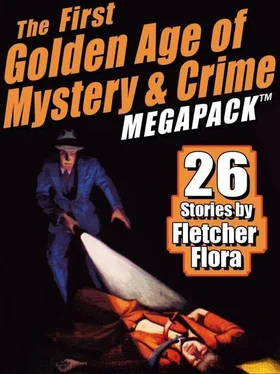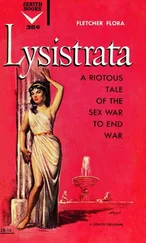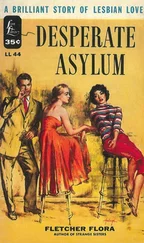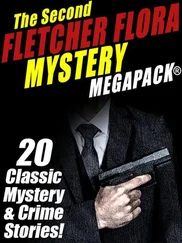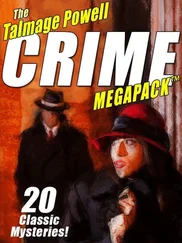“Rudy? How like Rudy?”
“Stupid.”
I couldn’t see Virg’s face in the dusk, not clearly, but I knew it was getting about the same color as his shirt. Purple, that is. Virg was like that when you gouged him a little. He’d bloat and turn purple. Someday he’ll probably drop dead of apoplexy or something.
“I got a right to my opinion,” he said.
“Sure you have,” I said. “You got a right to be as stupid as you please on your own time, but you got no right to be stupid on county time. Not for pay.”
“You’re so damn smart, Colby, suppose you tell me what’s stupid about it.”
“I’ll try. First place, a hay fire isn’t hot enough to destroy a body. There’d be lots of things left to identify. Second place, the fire could be seen right away from two, three farmhouses. It’d just attract attention to the body instead of getting rid of it. Third place, you got a charred body, you got a certain woman missing. Any idiot could put the two together.”
“Just the same, Colby, someone put the body in the haystack and set the fire. Why?”
“I don’t know. I can’t figure it. I told you I couldn’t.”
“Well, damn it, there’s got to be a reason.”
“Sure, there does. There’s a reason for everything. Maybe, if we’re lucky, we’ll find out what it is. You talked to all these kibitzers?”
“Yeah. Nobody saw anything. Just the fire blazing up. They all came running from wherever they were, but there wasn’t anything anyone could do. They just stood around and watched until the stack burned away enough to show the body. About that time, Rudy and I got here.”
“Be sure to get their names in case we want to talk to them again. I’m going up to see Crawley.”
I went back across the field and the pasture and up the long lane between barbed wire fences into the barnyard. Darkness was gathering and deepening between the barn and the house. There was still no light burning inside the house, but I saw a tiny red eye glowing angrily in the dense darkness of the screened-in back porch, watching me as I crossed the yard. When I drew near, I heard the thin creaking of rockers on the wood floor. Crawley was there alone in the darkness, smoking and rocking and waiting. I went up the steps and took hold of the latch of the screen door.
“Crawley?” I said.
“I’m here,” he said.
“It’s me. Colby Adams.”
“I can see you, Colby. Come on in.”
I went on inside and found another rocker beside the one Crawley was sitting in. Crawley kept on rocking and smoking. He didn’t say anything, still waiting.
“Tough luck, Crawley,” I said. “I’m sorry.”
“She wouldn’t do right,” he said. “She kept asking for trouble, and she finally found it. More trouble than she could handle. Maybe I’ll miss her for a while.”
“Chances are she was murdered, Crawley.”
“Chances are. Nothing else occurred to me.”
“You know anyone who might have wanted to kill her?”
“I might have. Lots of times. No one had a better reason.”
“Did you do it, Crawley?”
He sighed in the darkness and laughed softly after the sigh. There didn’t seem to be any bitterness in the successive sounds. They were expressions, I thought, of a black depth of tiredness.
“Not me, Colby. I might have, eventually, but I never got around to it.”
“All right. That disposes of you. How about someone else?”
“You want to play eeny, meeny, miney, mo? I don’t.”
“Maybe we ought to stick to current affairs.”
“Don’t ask me, Colby. I quit trying to keep up quite a while ago.”
“You’re not being much help, Crawley.”
“I’m not sure I want to be. I didn’t kill her, and I didn’t want it to end this way for her, not really, but now that it has, whoever did it, I can’t seem to work up any yen for justice or revenge or anything like that. Probably she deserved what she got.”
“That’s pretty rough on her, Crawley.”
“I don’t think so. Nothing hurts her now. Nothing will help her.”
“You always try to catch a murderer. Especially if you happen to be a cop.”
“I know. You got your job.”
“Sure I have, Crawley, and I’d better get on with it. You willing to tell me what you can?”
“You ask the questions, Colby. I’ll answer.”
“All right. When was the last time you saw Faye alive?”
“This morning. About nine o’clock, I guess. I’d been doing some work around the barn. About that time, about nine, I decided to go repair some fence that’s been needing it for a while. I went into the house and told Faye I was going, and she said all right, that she thought she’d go into town later. I went back to the barn and got a roll of wire and some tools and left. I didn’t come in at noon. I wasn’t hungry. I stayed on the job until after four in the afternoon, and it was close to five when I got back here. Faye wasn’t home, but the car and the truck were both here, and so I assumed someone had come and picked her up. It wasn’t unusual for that to happen. I ate a cold supper by myself and sat here on the porch, right where I’m sitting now, until the fire started down there in the field.”
“Where is this fence you mended?”
“West of here. Over on the section line.”
“Not close to the creek or the field where the fire started?”
“No. A long way. You know where the section line is, Colby.”
“Did Faye tell you where she was going in town?”
“No. She didn’t say. I didn’t ask.”
“She didn’t mention anyone picking her up here?”
“Faye hardly ever told me what she planned to do. When she did, she usually lied.”
The lights of a car flashed past the side of the house, picking up the edge of the barn and flooding the lane beyond. The car itself followed, the tired ambulance driven by Emil Coker, undertaker and coroner. It went past the barn and stopped while someone got out and opened the gate to the lane. It went on down the lane and stopped again at the far end while someone got out again and opened the gate to the pasture. It moved on across the pasture, red tail lights bobbing.
I stood up and said, “There goes Emil.”
“Yeah.” His voice was curiously flat. “You’ll want to go down and talk to him, I guess.”
“No. Not tonight. Tomorrow will be soon enough. It isn’t likely Emil will have anything to tell me that I can’t guess.”
“Sure. She’s dead. Someone killed her. You don’t need Emil to tell you.”
I walked over to the screen door and opened it, hesitating before passing through. I thought about saying again that I was sorry, but it didn’t seem to be necessary. He struck a match and lit a cigarette, the planes of his face flat and hard in the brief flare. The descending darkness was swollen and throbbing with the sounds of the night — an owl’s cry, a chorus of frogs, the singing of a thousand cicadas.
“Good-night, Crawley,” I said.
“Good-night,” he said.
I turned the patrol car in the yard and drove down the drive to the road and down the road to town.
I drove along the main drag to the Hotel Bonny, a five story brick building standing tall on a corner. The street, in the slack period between five and eight, was almost deserted. Angling into a parking slot in front of the hotel, I got out and went into the lobby and down a couple of steps into the taproom. The taproom, like the street outside, was idling through the early evening interlude when people were engaged in other places. Hobby Langerham was behind the bar. He was eating a roast beef sandwich, washing it down with Schlitz beer. Hobby was a shrewd guy with sharp eyes, built like one of the kegs he tapped for the customers, and he had been behind the Bonny bar for a dozen years or more. He pulled a long shift, twelve to twelve, opening to closing, and I knew from experience that he generally knew who came and went at approximately what times.
Читать дальше
